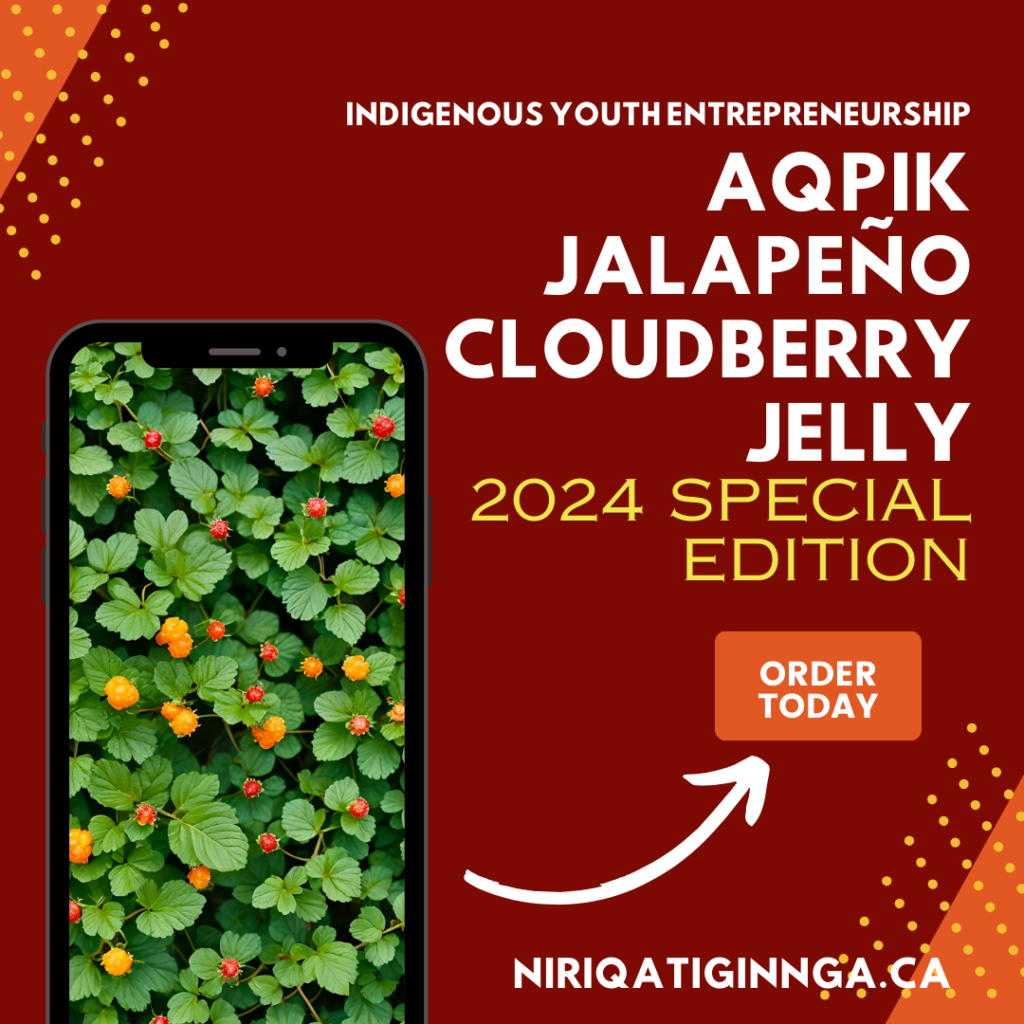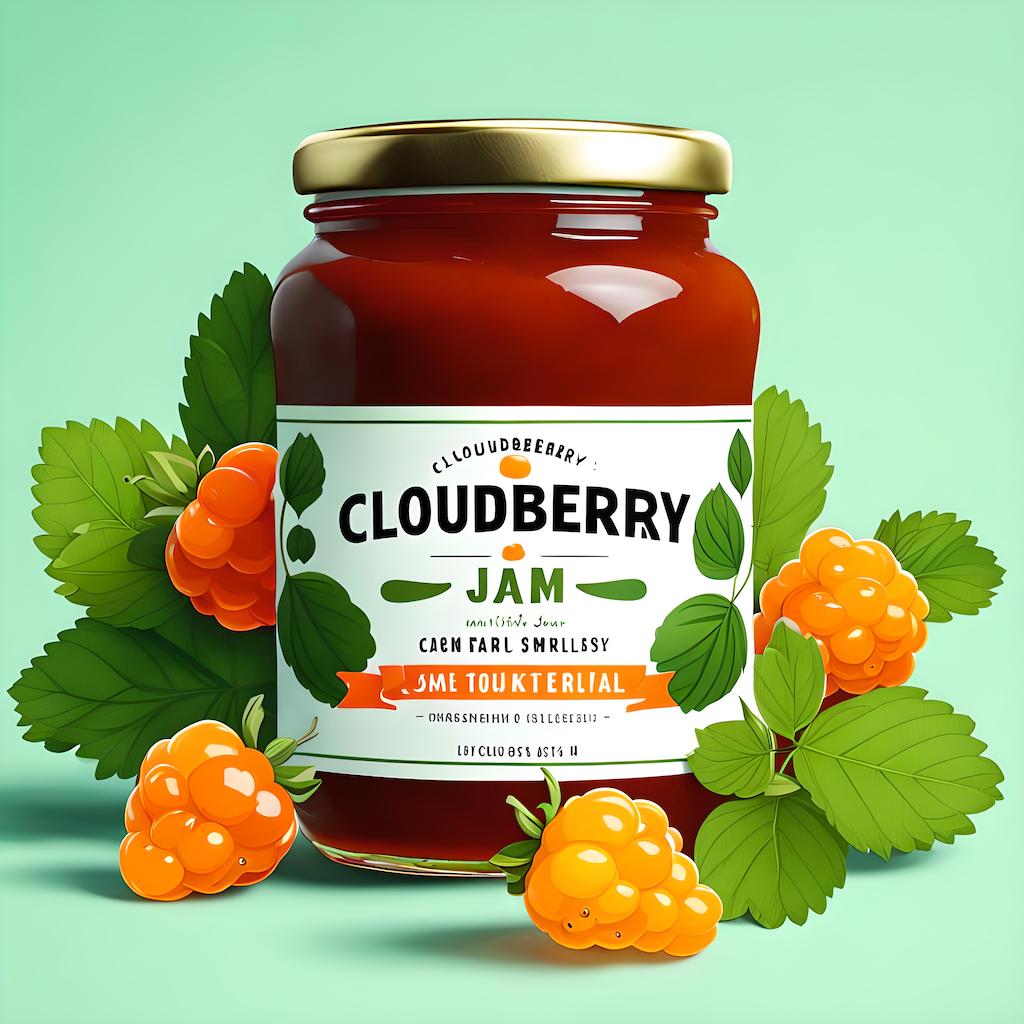THE ART OF CANNING FOR CULTURAL ENTREPRENEURSHIP
The Art of Canning and Food Product Development for Cultural Entrepreneurship
Niriqatiginnga: The Art of Canning for Cultural Entrepreneurship introduced the art of canning, food preservation and product development to urban Indigenous youth in Winnipeg, Manitoba.
Combining canning and hands-on skills development, participants learned to create and market a food product, while exploring opportunities for cultural entrepreneurship in the agri-food sector. The project explored themes of sustainable food systems through traditional knowledge exchange, food literacy and advancing economic reconciliation.
In December 2023, this component of Niriqatiginnga was approved for funding from the Sustainable Canadian Agriculture Program – Indigenous Agriculture and Food Systems program with Manitoba Agriculture.
About the Project
An Introduction to Food Sector Entrepreneurship
This developmental, experimental pilot project project aimed for impacts across key agriculture and agri-food sectors, particularly local food production, food processing, value-added production and new product creation. It explored building relationships with harvesters, food processors, producers, and distributors, while exploring ways to streamline getting those products into communities.
Approaches to cross-cultural and traditional knowledge exchange, similar to a ‘train the trainer’ approach were intended to support advancing economic reconciliation through food-sector skills development, entrepreneurial capacity building, early career exposure and opportunities and growth within these sectors.
Skills Development and Empowerment
The project’s immersive workshops were intended to equip Indigenous youth with practical canning, food preservation and introductory food industry skills. This empowerment not only preserves cultural practices but contributes to the local food production sector. By reviving traditional methods, participants learned to enhance local food sources, align with sustainable agriculture practices and generate interest the local and regional food production sectors.
Entrepreneurial Capacity Building
Beyond transferable skills acquisition, participants were introduced to concepts for cultural and food sector entrepreneurship. This capacity building activity was intended to directly impact the agri-food sector by inspiring aspiring entrepreneurs to design, create, market and sell new and value-added products. Future training and early career exposure activities will deepen linkages between producers and consumers, with the goal of fostering a more resilient local food processing and distribution sector.
Sustainable Impacts and Outcomes
Transferable skills in cultural/food-sector entrepreneurship and enhanced capacity for participation in enhancing local food systems was a key goal. In future iterations, participants will be supported in launching micro-ventures with support from established businesses. Economic reconciliation will be advanced by integrating traditional knowledge with modern agri-sector training and the adoption and exploration of new technologies.
Exploring career pathways and Food Product Development
This pilot project, as an experimental pilot, stemmed from conversations about a desire to revive and celebrate the traditional practice of canning and food preservation.
Canning was viewed as not merely a method to extend shelf life; but holding cultural significance for First Nations, Métis, and Inuit peoples. This pilot project aimed to impart these skills and empower youth to create and market their food products.
These workshops served as platforms for cultural exchange and relationship building, as participants were also encouraged to share stories and insights related to their heritage.
Guided by experienced mentors and food industry entrepreneurs, participants acquired basic, practical expertise and explored innovative approaches to food preservation. For future iterations of these activities, the team envisions an engaging process wherein participants continue to interact closely with mentors and experts. A range of tools and materials were provided, such as canning jars, utensils, canners, and labels. Expert facilitators led the workshops, ensuring that participants developed an introductory understanding of the art of canning and food product development.
This project also served as a vehicle for building relationships needed for introduce and explore potential pathways and opportunities for careers in the agri-food sector.
Advancing Economic Reconciliation
Next Steps
Building on the completion of these prototype/pilot canning workshop activities, the project aims to extend into several significant next steps, all designed to ensure a sustained and enduring impact that can be replicated and delivered; and so that it will continue to benefit participants and their communities.
With this project as a prototype, we will improve and explore its potential as a replicable model for future delivery. This will include incorporating a series of in-person events and events to enhance social connectedness, while exploring deeper into food production and manufacturing. Based on these experiences, we are better able to ensure participants are well-equipped with introductory knowledge to produce high-quality products. Future iterations of these activities will build on this work by coving topics such as food safety regulations, sustainable business practices and scalability in future sessions, where participants can learn to make informed decisions and adapt to evolving market demands.
The project team members are committed to providing ongoing mentorship to program participants. The project team understands that the journey of an arts, culture or food sector entrepreneur doesn’t end with one workshop or program. To facilitate this, we’ll explore establishing a longer-term mentorship program connecting youth, artists and aspiring food sector workers with experienced mentors.
Beginning summer 2024, these mentors will provide valuable insights into product development, effective marketing strategies, and the intricacies of managing a successful business. Through regular check-ins and targeted workshops, participants will have the opportunity to address challenges and refine their entrepreneurial skills. We recognize the importance of continuous learning in this journey.









